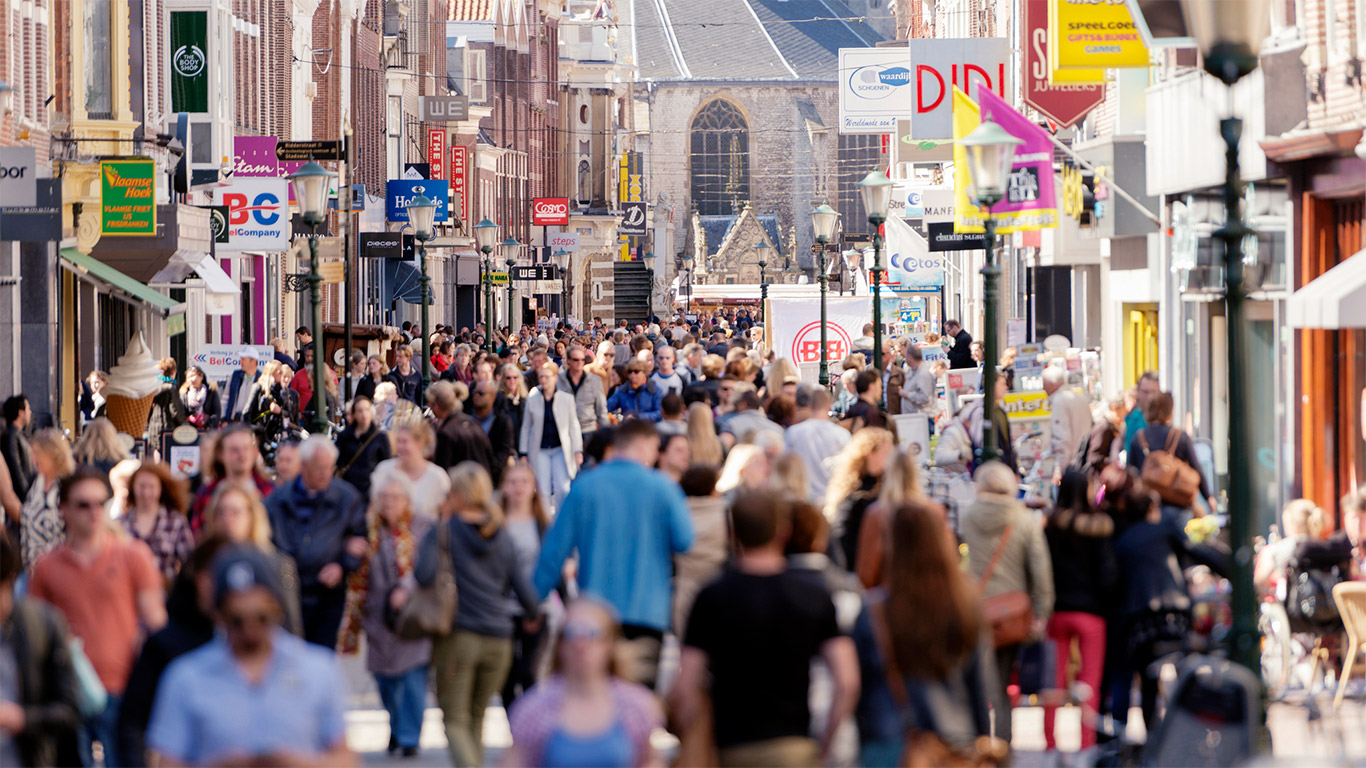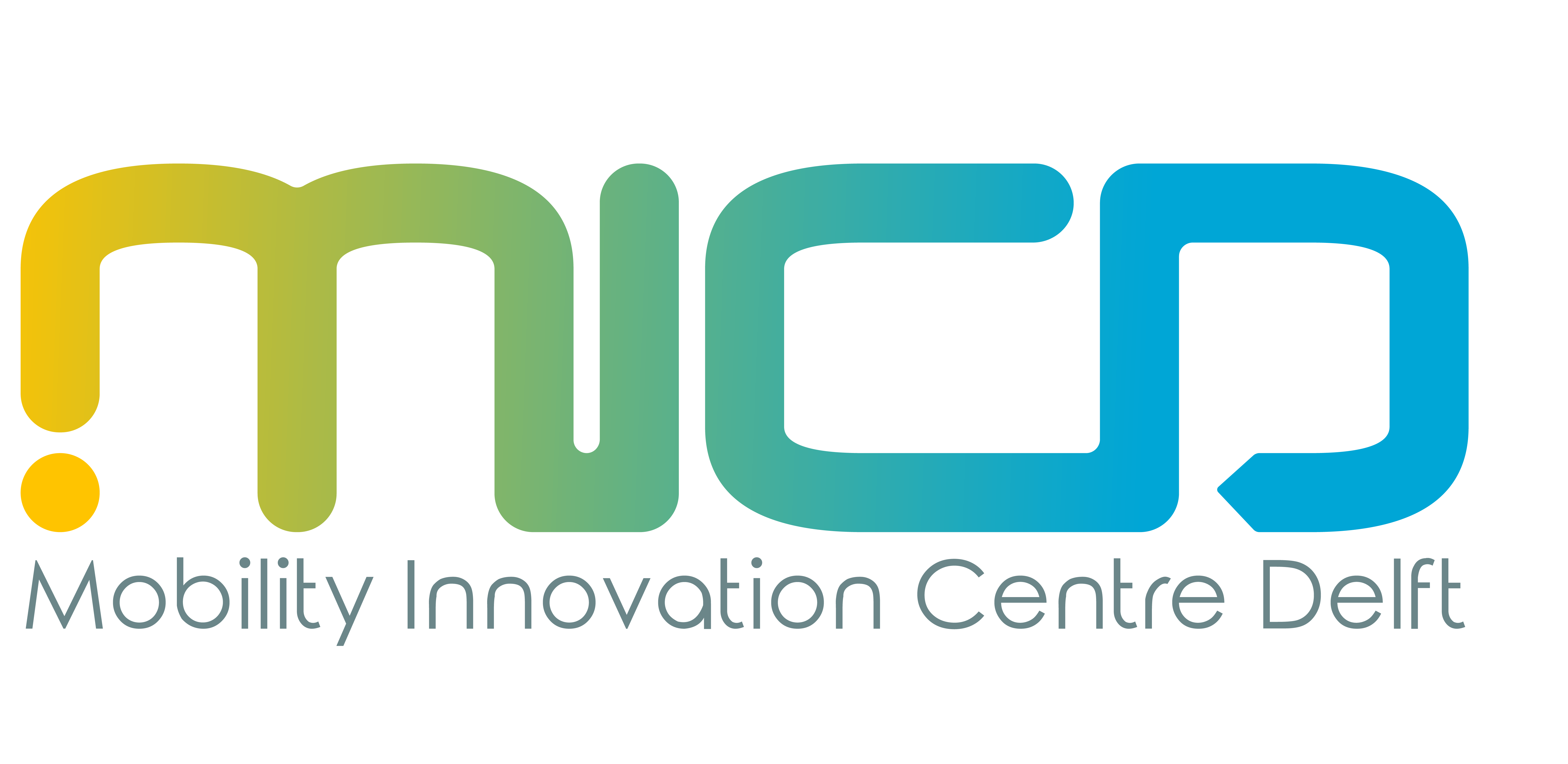MICD is collaborating with TU Delft and 24 other parties on a study into the use of AI (artificial intelligence) in crowd crises, AI Compass. Examples include excessive crowds at an event, a grim atmosphere after a football match or fleeing crowds during a calamity. The aim is to develop systems that provide reliable forecasts to prevent a crisis and, in case one does occur, provide real-time advice to the authorities. This will help minimise security risks. The research investigates the optimal cooperation between humans and AI.
Duration
2024 – 2029Partners (TU Delft)
TU Delft-CEG, department of Transport & Planning;TU Delft – TPM, Resilience LabPartners (other)
Please see below
Cities are getting busier and during events, things do not always run smoothly. On a regular basis, an event becomes too crowded, the atmosphere at a demonstration changes or something happens in a shopping street that causes a crowd to start moving. The research aims first of all to provide insight into the determining factors in making good predictions upfront, so that a crisis is prevented from occurring in the first place. Then, if a calamity does arise, it is important to respond immediately. The third aspect on which the study focuses, is minimising the consequences and reducing or mitigating the impact. In other words, prevent, control and reduce negative consequences.
For the municipality, police or other authorities, preventing a restless crowd is essential. When an unsafe situation does arise, they must manage the crowd or intervene in some other way to prevent escalation and ensure safety. They have to make decisions on the right action to take in a very short time and under high stress. AI is particularly suitable for pattern recognition, lightning-fast data analysis and scenario building. The decision on the correct course of action always remains with a human: policymakers and emergency services take the advice into consideration, but always remain ‘in control’ themselves.

The pilots are expected to provide valuable insights into the interaction between AI and humans. The research focuses on properly understanding the qualities of both humans with considerable knowledge and experience, and AI systems. AI can extract information from huge amounts of data much faster than humans can. The dynamics in groups of crowds are immensely complex. AI is used to estimate the current situation and make a prediction: an outlook for the next hour. Based on these two imageries, a foreshadowing of different decisions and their potential impact is made.
The collaboration partners are developing solutions for different situations through two pilots. In The Hague and Rotterdam, two cities of different character, the situations will be designed and tested. The combination of expertise in crowd dynamics, advanced sensor technology and AI makes this project unique. Think of innovative digital tools for planning and monitoring both planned and unexpected events. The insights will be trialled later in the municipalities of Delft, Dordrecht and Sittard-Geleen. All partners involved in the project will be consulted throughout the duration of the study, so that AI’s decision support becomes widely applicable. The explicit aim is to develop tools that will actually be used in practice in the future.
Recent MICD research with the Crowd Safety Manager already provided interesting insights, including during Koningsdag (King’s Day) and the Marathon (Rotterdam, 2023), the Invictus Games and crowded days at the beach (The Hague 2022 and 2023). Based on collected data, solid analyses were made, providing reliable forecasts. This is very valuable for timely engagement of the right person in the right position and correctly managing the crowd. However, before AI can actually be used as a supporting instrument in such critical decisions, social acceptance is necessary. In this regard, aspects such as ensuring privacy and understanding how advice is generated (so-called explainable AI), play an important role. In other words, AI Compass aims to bring together behavioural science, ethics and AI research to optimally use the collaboration between humans and technology to improve public safety.
Partners
TU Delft, University of Groningen, Ministry of Infrastructure and Water Management, Province of Zuid-Holland, Municipalities of Delft, Dordrecht, Rotterdam, Sittard-Geleen, and The Hague, Netherlands Police, Safety Region Rotterdam-Rijnmond, NS, ProRail, HTM, RET, Connekt, Future City Foundation, NEN, WE Labs, Argaleo, Capgemini, ELBA\REC, Genetec, Nenova, Safesight, Binnenstadsmanagement Den Haag, Stadion Feyenoord.

